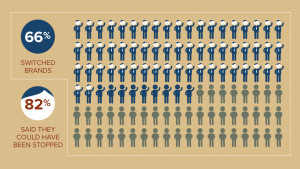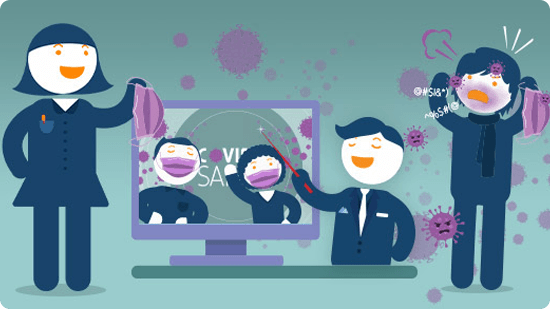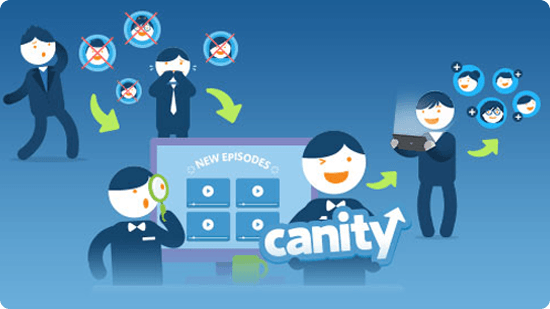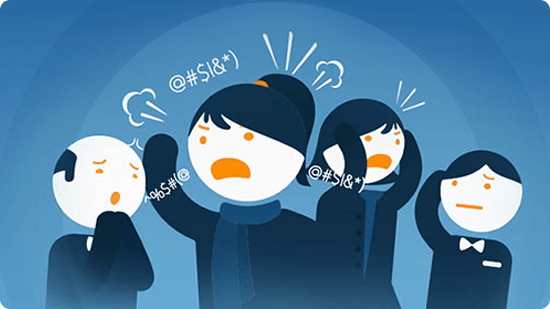The future is customer service. It’s something all industry experts seem to agree on: we’re in the era of the customer.
Last year 75% of companies stated that their main objective was to improve the customer experience. Why is this? And what does it mean for companies of the future?
The customers of today are calling the shots. They’re smarter, and with online shopping available in the palm of their hands, they have more options than ever before. Customers are realising more and more that they’re in the driver’s seat and are now hyper-critical when it comes to their experiences. If something doesn’t go smoothly during an interaction with a company, customers expect that company to react quickly, rectify the problem, and put effort into regaining their loyalty and trust.

Research shows that customer experience is now the number-one factor of brand differentiation, overtaking both product and price. Is it any wonder that companies are increasingly spending money on improving their customer service policies and programs?
Given that more companies are acknowledging the importance of customer service, what trends can we expect to see in 2019?
1. More Personalisation
Customers don’t like their time being wasted and are increasingly expecting their experiences to be personalised. The ability to tailor and personalise the way your company interacts with customers will be the best marketing investment you will ever make.
Spotify is a great example of a company which has personalised its users’ experiences. When you’re signed in and listening to music or podcasts, all you have to do is hit ‘like’ on a song for it to update and better personalise your playlist in real-time. The more consumers use the app, the more it becomes unique to them and their needs.
With over 157 million users, Spotify is definitely doing something right! So, take a leaf from their book and start building meaningful relationships with your consumers. If you’re unsure of how to do this, our online training videos will help.
While Spotify has been built around this trend, it’s not too late for more traditional companies to jump on the bandwagon. Supermarket juggernauts Coles and Woolworths both remember their customers’ frequent purchases and send them a personalised e-mail when these products go on sale.
2. Improved Customer Experience
This next trend is kind of obvious, but let’s not confuse that with being easy. If your company takes customer service seriously, it’s important that you’re always looking for ways to improve the customer experience.
It’s important to understand customers’ expectations. According to a study completed by The Guardian, over 40% of customers who complain about a product or service on social media expect a response within one hour. And customers would be willing to pay $19.83 more if a response was provided within six minutes. Perhaps most surprisingly, 73% of respondents want the ability to solve product and service issues on their own, with one third saying that they’d rather clean toilets than speak with customer service.
I think we can all agree that if your consumers would rather clean a toilet than speak to the customer service team, your company has quite a bit of work to do. Why don’t you start improving customer experience by utilising online customer service training?
3. Post-Purchase Forgiveness
According to Trend Watching, post-purchase forgiveness is 2019’s must-have customer service trend.
So, what exactly is post-purchase forgiveness? Basically, it allows consumers to go back in time and change past decisions.
An example of a company embracing this trend can be seen with Mastercard. In July 2017, a UK financial tool, Curve, partnered with Mastercard to allow customers to switch the debit or credit card used for a transaction up to two weeks after the initial purchase.
This somewhat drastic trend is fuelled by some shocking statistics reported by Accenture in their Global Consumer Pulse Survey. Their studies showed that 66% of consumers switched brands due to poor customer services, an increase on previous years. 82% of those that switched said that the brand could have done something to stop them.
Is that something post-purchase forgiveness could address? Many companies are already trialling it out with some success, so we’ll see if this trend is here to stay.

Scientists have proven that receiving great customer service triggers the same cerebral reaction as feeling loved. This signifies how vital it is, and will continue to be, for a company to provide exceptional customer service.











